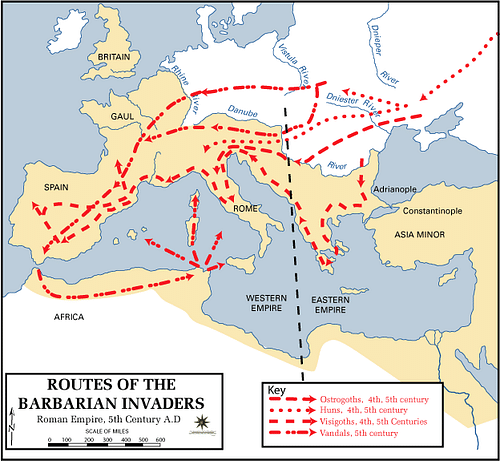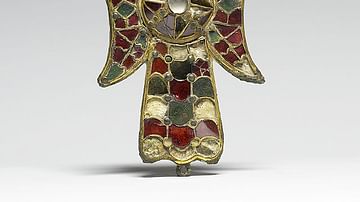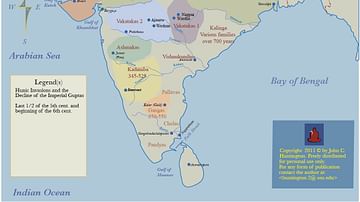
The Migration Period, also called the Barbarian Invasions or German: Völkerwanderung (wandering of the peoples), was a period of human migration that occurred roughly between 300 to 700 CE in Europe, marking the transition from Late Antiquity to the Early Middle Ages. These movements were catalyzed by profound changes within both the Roman Empire and the so-called 'barbarian frontier'. Migrating peoples during this period included the Huns, Goths, Vandals, Bulgars, Alans, Suebi, Frisians, and Franks, among other Germanic and Slavic tribes.
The migration movement may be divided into two phases: The first phase, between 300 and 500 CE, put Germanic peoples in control of most areas of the former Western Roman Empire. The first to formally enter Roman territory — as refugees from the Huns — were the Visigoths in 376. Tolerated by the Romans on condition that they defend the Danube frontier, they rebelled, eventually invading Italy and sacking Rome itself in 410 CE, before settling in Iberia and founding a kingdom there that endured 300 years. They were followed into Roman territory by the Ostrogoths led by Theodoric the Great, who settled in Italy itself. In Gaul, the Franks, a fusion of western Germanic tribes whose leaders had been strongly aligned with Rome, entered Roman lands more gradually and peacefully during the 5th century, and were generally accepted as rulers by the Roman-Gaulish population. Fending off challenges from the Allemanni, Burgundians and Visigoths, the Frankish kingdom became the nucleus of the future states of France and Germany. Meanwhile, Roman Britain was more slowly invaded and settled by Angles and Saxons.







